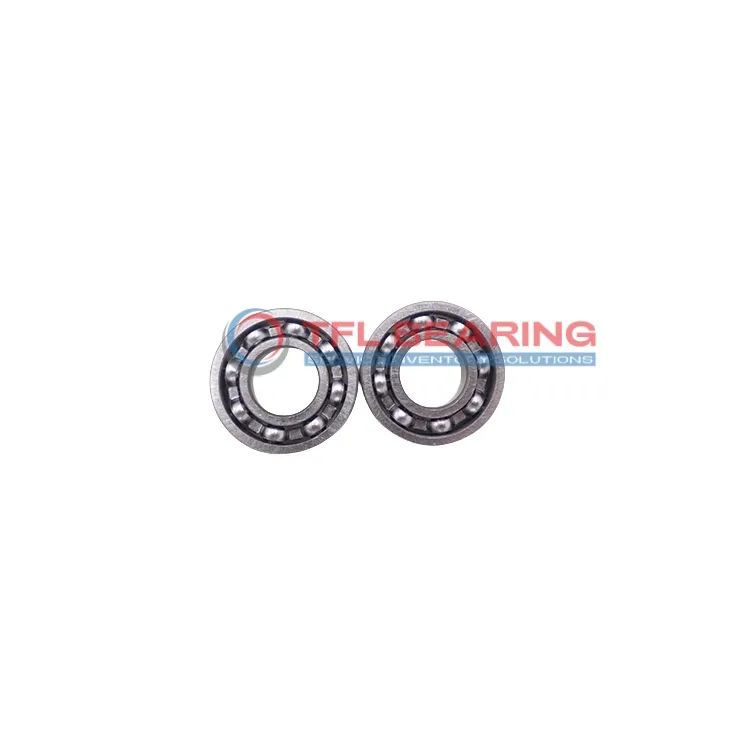
The 215 is a single-row deep groove ball bearing with a 75mm bore and 130mm outer diameter, crafted from sturdy chrome steel. It handles radial loads up to 16209 lbf and operates smoothly at speeds up to 5300 RPM.
Its open design with filling slots allows for easy lubrication, while the nylon cage reduces friction and noise. The bearing performs reliably in temperatures ranging from -30°C to 120°C.
This model is interchangeable with SKF bearings, offering a practical replacement option. It’s well-suited for applications like electric motors or pumps where radial loads are common.
Weighing 1.25kg, it’s a robust choice for industrial use. Compliant with RoHS and REACH standards, ensuring safety and environmental friendliness.
"*" indicates required fields
Performance Features of 215 Bearing
215 Bearing is designed with chrome steel rings and balls, offering strong resistance to radial loads.
Its dynamic radial load capacity reaches 16209 lbf, ensuring reliable performance in various applications.
The nylon cage helps reduce friction and noise, making it suitable for quieter operations.
With a maximum speed of 5,300 rpm, it balances durability and efficiency.
How Does 215 Bearing Reduce Friction?
215 Bearing features a nylon cage that minimises friction between the balls and raceways.
The chrome steel construction ensures smooth operation even under heavy radial loads.
Its open design allows for easy lubrication, further reducing friction and wear.
This makes 215 Bearing a practical choice for long-term use.
Engineered for Precision: 215 Bearing
215 Bearing’s single-row deep groove design ensures precise radial load handling.
The chrome steel components provide durability and consistent performance.
With a temperature range of -30° to 120°C, it adapts well to varying conditions.
Its filling slots simplify lubrication, enhancing operational efficiency.
Why Choose 215 Bearing for Precision Tasks?
215 Bearing’s precise dimensions and tight tolerances ensure accurate performance.
The chrome steel balls and rings maintain stability under radial loads.
Its nylon cage reduces vibration, making it ideal for precision instruments.
With a static radial load capacity of 16186 lbf, it handles demanding tasks reliably.
Industrial Uses of 215 Bearing
215 Bearing is commonly used in industrial machinery like pumps and electric motors, where its deep groove design handles radial loads efficiently. The chrome steel construction ensures durability in demanding environments.
In automotive applications, 215 Bearing fits well in components such as alternators and water pumps, providing reliable performance. Its metric sizing makes it a versatile choice for various vehicle models.
For automation systems, 215 Bearing supports robotic arms and conveyor belts, thanks to its smooth operation. The nylon cage reduces friction, enhancing longevity in continuous-use scenarios.
Where Is 215 Bearing Used?
You’ll often find 215 Bearing in household appliances like washing machines, where its radial load capacity is ideal. The open design allows for easy lubrication, extending its service life.
In medical devices, 215 Bearing’s precise construction ensures smooth operation in equipment like centrifuges. The temperature range makes it suitable for both laboratory and clinical settings.
Built for Heavy-Duty Use: 215 Bearing
215 Bearing excels in construction equipment, handling heavy loads in gearboxes and drivetrains. Its robust design ensures reliability even under constant stress.
For agricultural machinery, 215 Bearing’s resistance to wear makes it a dependable choice. The wide temperature range allows it to perform well in varying weather conditions.
Automotive vs Aerospace: Applications of 215 Bearing
In automotive systems, 215 Bearing is used in transmissions and wheel hubs, offering consistent performance. The metric sizing ensures compatibility with a range of vehicles.
For aerospace applications, 215 Bearing’s lightweight yet durable design is suitable for auxiliary systems. Its ability to handle radial loads makes it a practical option for aircraft components.
"*" indicates required fields